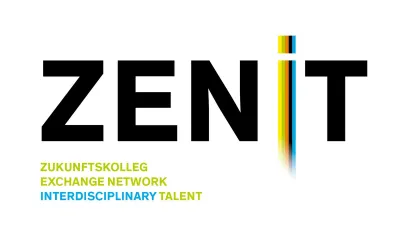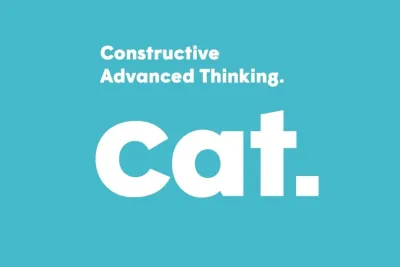YOU are a researcher at the University of Konstanz, with a non-tenured or a tenure-track position.
YOU are interested in bursting open new boundaries, think beyond and across disciplines.
YOU want to investigate an exciting question in collaboration with colleagues across the world.
YOU want to create a
Zukunftskolleg Exchange Network: interdisciplinary Talent (ZENiT)
!! If so – do apply!!
WE offer financial support for up to 3 research groups:
- of up to 5 people in total to meet in Konstanz for
- up to 3 times on short research stays,
- up to 3 years.
These stays could be symposia, group discussions, writing retreats, preparations for experiments, coordination of group activities – it is up to you. We cover the costs for the meetings, and research costs for the group in the range of € 10.000 to € 100.000 over the three years (within DFG funding rules).
You will be a ZUKUNFTSKOLLEG RESEARCH FELLOW with all its benefits:
- An interdisciplinary community with a weekly Jour fixe during teaching term
- An international, interdisciplinary network and visibility
- € 3.000/year research funds and the possibility for additional funding upon application, based on yearly decision by the Zukunftskolleg’s Executive Committee
Researchers at an early career stage have to focus on a single research question in order to become the best in their fields, gain visibility and create a successful career. At the same time, this is a career stage in which new questions, often across disciplinary boundaries, become particularly interesting: creating tomorrows ideas! These projects are best pursued as groups, with the best colleagues from across the world, and need preparation – but often the structures within our universities are not ideal for creating such groups.
The Zukunftskolleg ZENiT Research Group allows the creation of a group, which would meet in Konstanz over the course of three years, to develop such ideas: maybe write a joint book, or a grant application; develop a new research idea; found a new society, or establish a specialized meeting series; invent a new discipline at the interface of related ones; create a new show or exhibition, or follow the dream project on the sidelines of your current focus: think big, think long-term, think creative.together!
All applications should be submitted via the Online Application Platform and contain the following supporting materials:
1. Letter of motivation (1 page max., the length is an eligibility criterion*)
2. Research proposal (5 pages max., including references, the length is an eligibility criterion*). The proposal should include the long-term goal! Where are we, what do we expect to know in 3 years, that we do not know now? Do you foresee a sequel for the group?
3. Curriculum vitae of the applicant (3 pages max., the length is eligibility criterion*)
4. Curriculum vitae of the partners (3 pages max./each, the length is eligibility criterion*)
5. Letters of consents of the partners.
6. Excel table with the yearly budget
* If the length of 1, 2, 3 and 4 exceeds the max. allowed number of pages, your application will be ineligible and will not be considered further.
- You generally hold a PhD, you have a (postdoc) position at the University of Konstanz, you do not (yet) have tenure.
- Your position should ideally be available to you for the whole project time. If that is not the case, propose a scenario for how you will follow the project after your working contract termination!
- Any department is eligible.
Your partners should have complementary expertise to your own, in order to create synergistic effects. They should be active academics and/or artists or they might come from other fields in any place in the world. They should ideally hold a PhD (or equivalent grade if in an artistic discipline), and may well have tenure or be emeriti. Interdisciplinarity and diversity is encouraged.
The group needs to be international, but more than one member per institution (including Konstanz) is permissible.
The Zukunftskolleg ZENiT Research Group comes with two packages:
(1) the group is funded according to the submitted cost plan (with – if necessary – the amendments requested by the Recruitment Committee), with up to €100.000 to be spent within the three years of the project duration. This money is intended for the meetings, and for necessary research to be conducted during the time between meetings. Just as an example, a prolonged research stay of yours at another university or in an archive, a major equipment item, the extension of a PhD salary.
(2) You will be a Zukunftskolleg Research Fellow, with the following benefits:
- An interdisciplinary community with a weekly Jour fixe during teaching term
- Research funds upon application, decided by the Zukunftskolleg’s Executive Committee
- An international, interdisciplinary network and visibility
- € 3.000/year research funds, upon decision by the Executive Committee.
- Eligibility, as stated above.
- The academic originality and quality of the research proposal
- The feasibility of the research plan
- The accuracy of the proposed budget
- The appropriateness of the research group members
- Diversity of network members
- Congruency to the 5i strategy of the Zukunftskolleg
- Considerations for sustainability within a finite planet
An info event about the ZENiT Fellowship will take place on:
02.12.2025, 13:30-15:00, room Y326 "Zukunftskolleg Open Door" in the frame of the Career Week, organized by the Academic Staff Development.
If you have further questions regarding the ZENiT Fellowship programme please contact Mihaela Mihaylova (zukunftskolleg-research at uni-konstanz.de)

